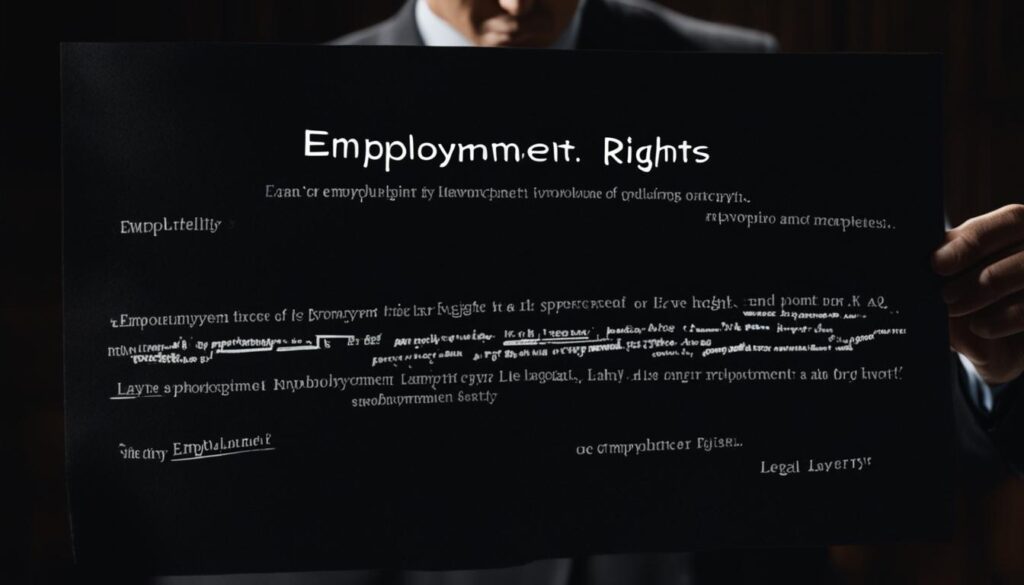Hiring employees in Mexico can be a complex process, but understanding the key strategies and requirements can help you effectively grow your business in the Mexican job market. Whether you choose to open a legal entity in Mexico or partner with an employer of record, it is important to collect the necessary information, comply with labor and payroll laws, design a comprehensive benefits package, and understand your tax obligations. Keeping up with Mexican labor laws, unions, work permits, and employee rights is crucial to ensure compliance. Companies like Remote can provide employer of record services to help you navigate these complexities and provide a first-class experience for your employees in Mexico.
Key Takeaways:
- The hiring process in Mexico requires a deep understanding of the local labor laws and regulations.
- Consider partnering with an employer of record to ensure compliance and simplify the hiring process.
- Designing a comprehensive benefits package is essential to attract and retain talented employees.
- Stay updated on Mexican labor laws, unions, work permits, and employee rights to avoid potential penalties.
- Companies like Remote can provide assistance with navigating the complexities of hiring employees in Mexico.
Understanding Mexican Labor Laws
Labor laws in Mexico provide important benefits and protections for employees, making it essential for employers to understand and comply with these regulations. Familiarizing yourself with Mexican labor laws, labor unions, work permits, and employee rights is crucial for maintaining a productive and legally compliant workforce.
Key Points to Know About Mexican Labor Laws:
- Mexican labor laws establish limits on working hours, ensuring that employees are not overworked and have time for rest and personal commitments.
- Employees in Mexico are entitled to a guaranteed day off per week, allowing for adequate rest and work-life balance.
- Overtime rates are set by Mexican labor laws, providing fair compensation for employees who work beyond regular working hours.
- All work contracts in Mexico are assumed to be indefinite unless specified otherwise, offering job security to employees.
Labor Unions and their Role in Mexico:
Labor unions play an important role in Mexico, representing the interests of workers and advocating for their rights. These unions are democratic and enjoy political support, empowering them to act on behalf of employees. It is important for employers to understand the influence and legal rights of labor unions in Mexico when managing their workforce.
Work Permits and Immigration Requirements:
Foreign companies hiring workers in Mexico must navigate work permits and immigration requirements. These regulations ensure that foreign employees are eligible to legally work in Mexico. Understanding these requirements is essential to avoid legal issues and ensure compliance with Mexican labor laws.
By familiarizing yourself with labor laws, labor unions, work permits, and employee rights in Mexico, you can create a workplace that is respectful, compliant, and conducive to employee satisfaction and productivity.
Hiring Options in Mexico
When expanding your business operations to Mexico, it is essential to consider the various hiring options available to you. By understanding the advantages and considerations of each option, you can make an informed decision that aligns with your business goals.
Setting up a Legal Entity in Mexico
If you choose to set up a legal entity in Mexico, it signals a long-term commitment to the market and grants you full control over your operations. However, this option requires meticulous planning, as it involves complex steps such as registering with the Mexican government and opening a business bank account. While the process can be time-consuming, it provides you with a legal presence in Mexico and allows you to directly manage your employees.
Partnering with an Employer of Record
Alternatively, partnering with an employer of record (EOR) in Mexico offers a streamlined approach to hiring and managing employees. An EOR acts as the official employer, assuming legal and administrative responsibilities on your behalf. This option allows you to hire employees in Mexico without the need to establish a legal entity. The EOR handles essential tasks such as payroll, benefits administration, and ensuring compliance with local labor laws. By leveraging the services of an EOR, you can focus on your core business while mitigating the complexities of international employment.
Hiring Contractors
Hiring contractors can provide flexibility for short-term projects or specialized services. It allows you to tap into specific expertise without the need for permanent employment. However, it is important to note that hiring contractors carries certain risks, such as misclassification and potential penalties if the contractor is deemed an employee by Mexican labor authorities. To mitigate these risks, it is crucial to properly classify and document the relationship with contractors, ensuring they meet the legal requirements for contractor status.
Consider your long-term objectives, budget, workforce needs, and risk tolerance when choosing the most suitable hiring option for your business in Mexico. Whether it’s establishing a legal entity, partnering with an EOR, or hiring contractors, each option presents its own advantages and considerations. By evaluating your options and seeking expert guidance, you can navigate the Mexican employment landscape with confidence and set your business up for success.

Managing Payroll and Employee Benefits
When operating a business in Mexico, managing payroll and providing employee benefits is essential for compliance and attracting top talent. Understanding the intricacies of payroll in Mexico ensures that you meet legal requirements and maintain a positive employer-employee relationship.
Payroll in Mexico involves adhering to minimum wage laws, which can vary by geographic location. It is crucial to stay up to date with local regulations to ensure that employees are compensated fairly. Additionally, employers must comply with workweek regulations, ensuring that employees are not overworked and receive their entitled time off.
Overtime rates play a vital role in the Mexican labor market. Employers must compensate employees at a higher rate for any hours worked beyond the standard workweek. It is important to accurately track and calculate overtime hours to ensure compliance and fair compensation.
Mexico has a unique practice of providing an annual Christmas bonus to employees, known as the “aguinaldo.” The aguinaldo is a mandatory benefit that employers must provide to all employees and is calculated based on the employee’s salary and length of service.
To streamline payment processes, employers must pay their employees in pesos at government-designated bank accounts. This ensures transparency and compliance with Mexican payroll regulations.
When it comes to employee benefits, Mexican labor law mandates statutory benefits such as social security contributions and profit-sharing. Employers must contribute to the Mexican social security system, covering healthcare, pensions, and other social benefits for their employees.
It is crucial to consider the varying benefits for different levels of employees, such as managers and senior-level staff. Offering competitive benefits packages can help attract and retain top talent in Mexico’s competitive job market.
To ensure compliance with Mexican labor laws and provide your employees with the benefits they deserve, consider partnering with an employer of record like Remote. Our trusted services can assist with payroll management, benefit administration, and compliance, allowing you to focus on growing your business.
By effectively managing payroll and providing comprehensive employee benefits, you can foster a positive work environment, attract top talent, and ensure compliance with Mexican labor laws.
Key takeaways:
- Payroll in Mexico involves compliance with minimum wage laws, workweek regulations, and overtime rates.
- Employers must provide an annual Christmas bonus, known as the “aguinaldo,” to all employees.
- Mexican employees are entitled to statutory benefits such as social security contributions and profit-sharing.
- Offering competitive benefits packages can help attract and retain top talent.
- Partnering with an employer of record can simplify payroll management and ensure compliance.
Conclusion
Hiring employees in Mexico requires a deep understanding of Mexican labor laws, unions, work permits, and compliance requirements. To successfully hire employees in Mexico, it is crucial to navigate these complexities and implement effective hiring strategies.
Whether you decide to establish a legal entity or opt for an employer of record, compliance with labor and payroll laws is essential. Ensure you design a comprehensive benefits package that meets the needs of your employees and understand your tax obligations.
Partnering with an employer of record can simplify the hiring process by taking care of payroll, benefits, and compliance, allowing you to focus on growing your business. By following the strategies outlined in this guide, you can attract and retain top talent while unlocking the full potential of the Mexican job market.
FAQ
What is the hiring process in Mexico?
The hiring process in Mexico can be complex. It involves collecting necessary information, complying with labor and payroll laws, designing a comprehensive benefits package, understanding tax obligations, and ensuring compliance with Mexican labor laws, unions, work permits, and employee rights.
What are the options for hiring employees in Mexico?
When hiring employees in Mexico, you have options such as setting up a legal entity, partnering with an employer of record, or hiring contractors. These options have different requirements and implications in terms of legal compliance, payroll, benefits, and flexibility.
What are the labor laws in Mexico?
Labor laws in Mexico generally favor employees and provide certain benefits and protections. They restrict the number of working hours, guarantee a day off per week, set overtime rates, and assume all work contracts to be indefinite arrangements unless otherwise specified. Employers need to comply with labor laws, register with the Mexican government, and be familiar with labor unions and work permit requirements.
How can I set up a legal entity in Mexico?
Setting up a legal entity in Mexico is a complex and time-consuming process. It requires registering with the Mexican government, opening a business bank account, and complying with various legal requirements. It is advisable to seek professional assistance to navigate the process efficiently and effectively.
What is an employer of record in Mexico?
An employer of record is a service provider that helps companies hire employees in Mexico without the need to set up a legal entity. They handle payroll, benefits, and compliance, ensuring that companies remain compliant with local labor laws and regulations.
What are the payroll requirements in Mexico?
Payroll in Mexico involves complying with minimum wage laws, workweek regulations, overtime rates, and providing bonuses such as the annual Christmas bonus. Employers must pay employees in pesos at government-designated bank accounts and ensure they meet the statutory requirements for social security contributions and profit-sharing.
What benefits are employees entitled to in Mexico?
Mexican employees are entitled to statutory benefits, including social security contributions and profit-sharing. Employers must also consider providing additional benefits based on different levels of employees, such as managers and senior-level employees.




